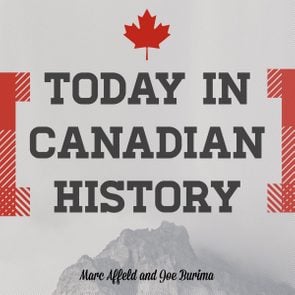10 Incredible Asian-Canadians You Didn’t Learn About in History Class
To celebrate Asian Heritage Month this May, we're taking a look at the remarkable Asian-Canadians who helped shape our country—and continue to influence and inspire us today.
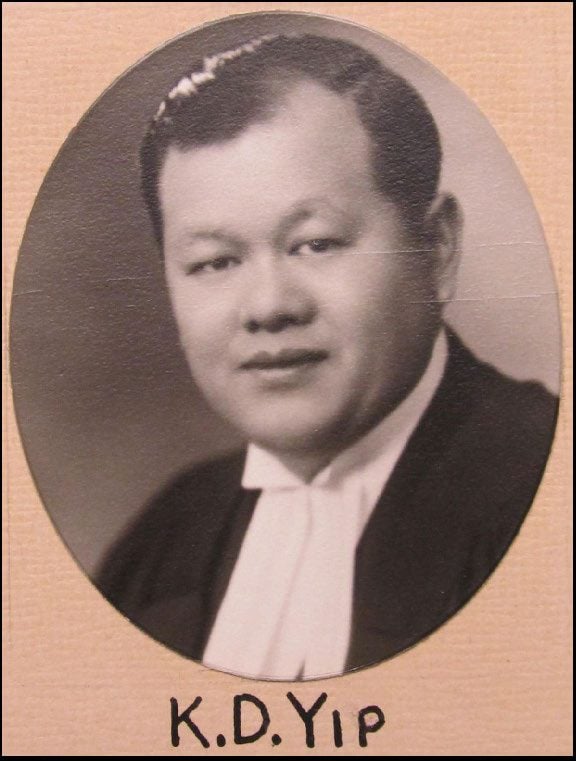
Kew Dock Yip (1906 – 2001)
Kew Dock Yip was the first Chinese-Canadian lawyer, and an activist who fought to repeal the 1923 Chinese Immigration Act, which barred nearly all Chinese immigrants from entering Canada. Thanks to the efforts of Kim, Jewish civil rights lawyer Irving Himel and other activists, the legislation was successfully repealed in 1947.
Born in Vancouver as the 17th of 23 children, Yip originally earned a degree in pharmacology from the University of Michigan in 1931. Shortly after graduating, he served as a secretary for the Chinese consulate in Vancouver before moving to Toronto to join the Queen’s Own Rifles reserve in 1940. Two years later, he entered Osgoode Hall Law School and became a lawyer. Yip was highly active in Toronto’s Chinese-Canadian community, working out of his Chinatown office for almost 50 years before retiring in 1992. For years, he was the only Chinese-speaking lawyer in the area and made legal aid more accessible to Chinese residents. He received the Law Society Medal from the Law Society of Upper Canada in 1998, a prestigious award given annually to lawyers who make noteworthy contributions in their field.
Irene Uchida (1917-2013)
Geneticist Irene Ayako Uchida didn’t initially pursue science as her career. Growing up, she was an avid musician and took piano, organ and violin lessons. Uchida went on to study English at the University of British Columbia. She then took a two-year break from her studies in Japan, but in 1941, instead of returning back to campus, Uchida and her family were forced by the Canadian government to move to an internment camp. There, she opened a school for interned children and acted as a principal and teacher until 1944. Uchida was finally able to complete her English degree at the University of Toronto in 1946 and, after finding inspiration from an introductory genetics course, earned a PhD in zoology five years later. Uchida was a pioneer in cytogenetics and eventually founded a laboratory at McMaster University. Her work helped develop a method to detect chromosomal abnormalities in fetuses and revealed that Down syndrome can come from either parent, not just the mother.
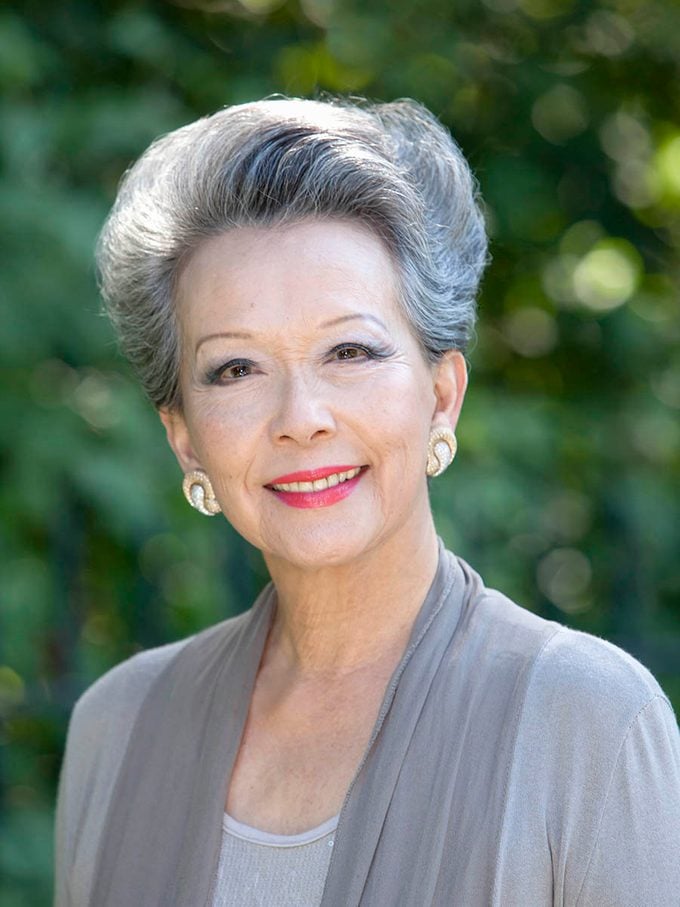
Senator Vivienne Poy (b. 1941)
Before becoming the first Canadian of Asian origin appointed to the Senate of Canada, Senator Vivienne Poy was renowned as a fashion designer and entrepreneur. She founded her label, Vivienne Poy Mode, in 1981. In her early years, Poy studied in Hong Kong and England. She moved to Canada in 1959 and earned a PhD in history from the University of Toronto. In 1998, Prime Minister Jean Chrétien appointed Poy to the Senate, where she sat with the Liberal caucus and represented Toronto. In the Senate, Poy was outspoken about Asian-Canadian rights and created a successful motion to designate May as Asian Heritage Month, which the government formally declared in 2002. She served as chancellor of the University of Toronto from 2003 to 2006, and is the author of five books, including a biography of her father, who was a businessman in Hong Kong. (Read up on more inspiring Canadian women you didn’t learn about in school.)
Raymond Moriyama (b. 1929)
Raymond Moriyama is one of the most respected architects in Canada—the same country where, during World War II, he was placed in an internment camp along with his family simply because of his Japanese heritage. In 1958, Moriyama founded his own design firm and later joined architect Ted Teshima and formed Moriyama & Teshima Architects in 1970. Today, Moriyama’s work is internationally acclaimed and includes some of Canada’s most iconic structures, including the Toronto Reference Library, the Ontario Science Centre, Canadian War Museum and the Canadian embassy in Tokyo. Moriyama has honourary degrees from ten universities and is a Gold Medal recipient from the Royal Architectural Institute of Canada, the institute’s highest honour. He is also a member of the Order of Ontario, the Order of Canada and Japan’s Order of the Rising Sun, in recognition of Moriyama’s efforts to promote relations between Canada and Japan.
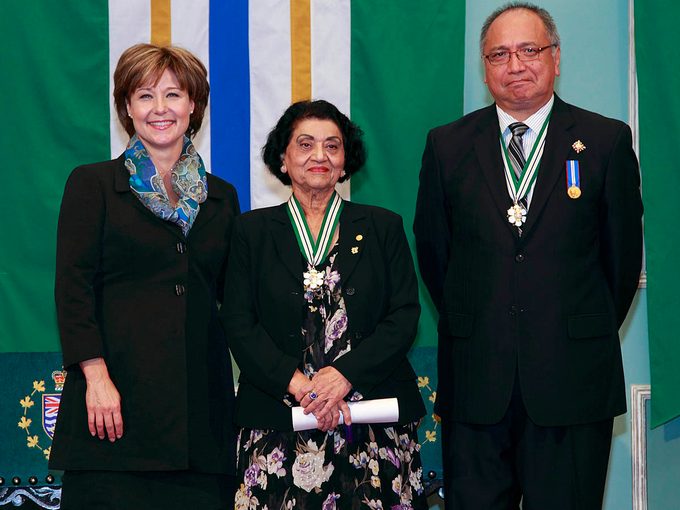
Baljit Sethi (b. 1943)
Baljit Sethi dedicates her work to advocating for immigrants and ensuring that they’re able to thrive within Canadian society. An immigrant herself, Sethi moved to Canada from India in 1972. Shortly after, Sethi worked at the Immigrant Services Society of British Columbia, first as a family counsellor and then as a settlement counsellor. In 1976 she founded what’s now known as the Immigrant & Multicultural Services Society in Prince George, B.C., which provides newcomers with multicultural and anti-racism programs. Sethi is a recipient of the Order of British Columbia and the Paul Yuzyk Award for Multiculturalism in the lifetime achievement category.
William Lore (1909-2012)
William K. L. Lore, born in Victoria, B.C., became the first Chinese-Canadian civil servant in the country, starting out as a wireless operator in the Department of Transport. After being denied three times because of his race, Lore finally joined the Royal Canadian Navy and became an officer, making him not only the first Chinese-Canadian in the Royal Canadian Navy but also the first person of Chinese heritage to serve in any British Commonwealth navy. At the end of World War II, Lore helped free Canadian, British and Hong Kong prisoners of war in Hong Kong. In 1948, Lore retired from the navy and earned a law degree, moving to Hong Kong to set up his legal practice.
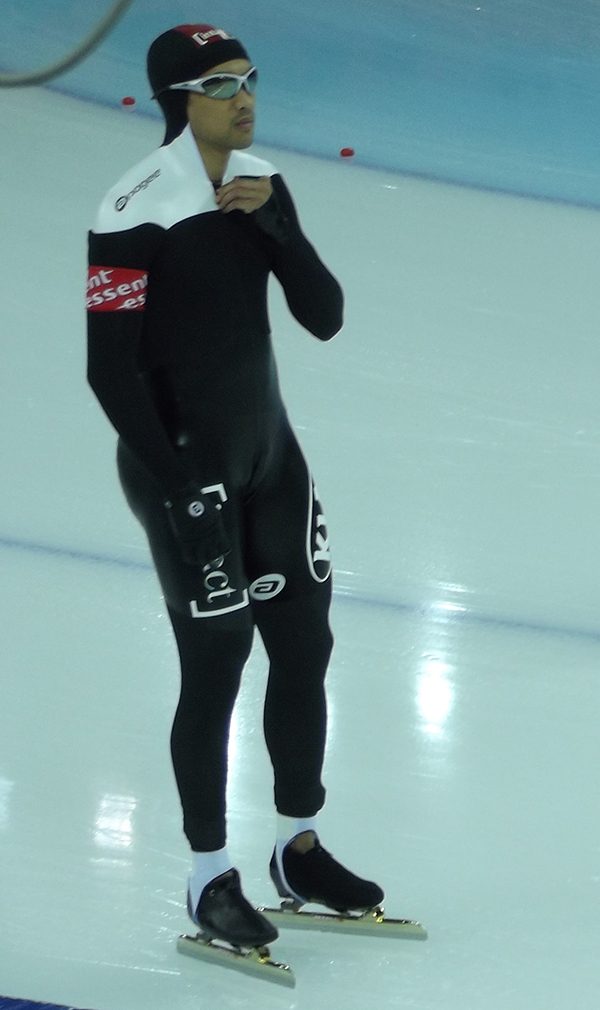
Gilmore Junio (b. 1990)
Long-track speed skater Gilmore Junio is a two-time World Cup gold medalist, but he’s perhaps best known for someone else’s win. In the 2014 Sochi Olympics, Junio decided to give up his spot in the 1,000-metre race to teammate Denny Morrison, who didn’t qualify for that event after falling during the Canadian trials. When the team realized they weren’t getting the results they wanted at Sochi, Junio’s coach turned to him and asked if he would consider giving his spot to Morrison. “At first my dad was a little upset they asked me and not someone else. But he understands that I see myself as a leader on this team and that I want to lead by example,” Junio told The Globe and Mail in 2014. “After I told him why I did it he was more proud.” Morrison won a silver medal and celebrated it with Junio. For his generosity and display of sportsmanship, Junio received a commemorative crowd-funded award started by a Toronto design firm that raised over $7,500. Earlier in the Olympics, Junio was the top Canadian in the 500-metre speed skating race.
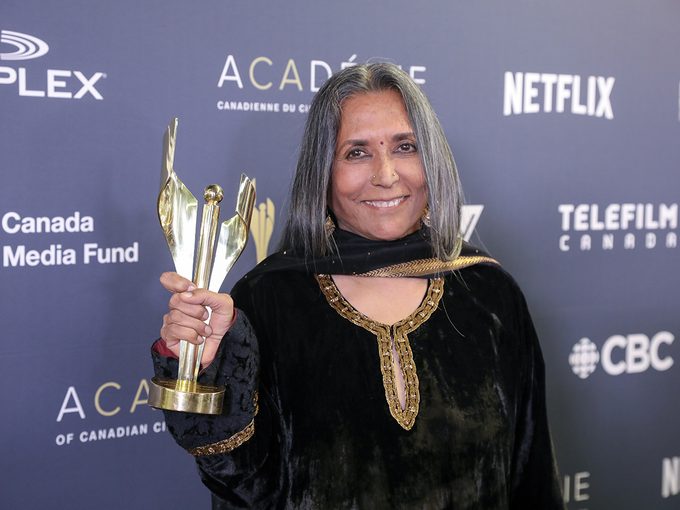
Deepa Mehta (b. 1950)
Director, producer and screenwriter Deepa Mehta’s films are revered for exploring social justice and human rights issues with gripping honesty. This includes her well-known Elements trilogy, which was released throughout the late ’90s and early 2000s and sparked controversy in India, where Mehta was born and raised and where the films were set. Fire questions the power imbalances found within marriages, Earth depicts the forced migration spawned from the creation of Pakistan and the Oscar-nominated Water follows a child bride and the ostracization she faces after the death of her husband. In 2012, Mehta received the Governor General’s Performing Arts Award for lifetime artistic achievement, and the Order of Canada and Order of Ontario in 2013.
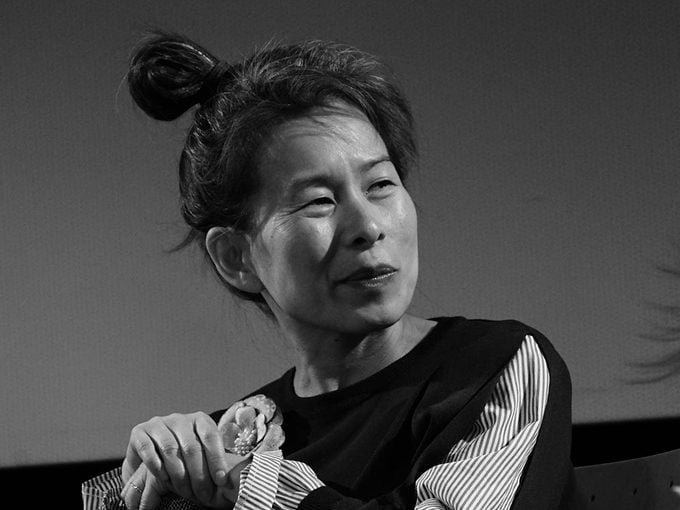
Kim Thúy (b. 1968)
Award-winning author Kim Thúy’s debut novel, Ru, published in 2009, is heavily inspired by her own journey, having fled Vietnam to a Malaysian refugee camp in 1978, and then arriving in Quebec by boat. Before starting her writing career with a novel that would win the Governor General’s Literary Award for French fiction and the Grand Prix littéraire Archambault in 2011, Thúy worked as a lawyer, a seamstress and an interpreter. For five years, she was also the owner of a Vietnamese restaurant in Montreal. After closing her restaurant, one of her former patrons reached out and asked if he could submit her unfinished manuscript to his friend, who would ultimately become her publisher. Ru became a bestseller and was translated in 15 languages. Thúy’s latest novel, Em, was shortlisted for the 2021 Scotiabank Giller Prize.
Shyam Selvadurai (b. 1965)
For novelist Shyam Selvadurai, politics has always found a way to intersect with his personal life. When he was 19, he and his family immigrated to Canada following the 1983 riots in Colombo, Sri Lanka. He himself is of mixed Tamil and Sinhala heritage, two ethnic groups that did not live harmoniously back in his home nation. Selvadurai’s first novel, Funny Boy, published in 1994, follows the coming-of-age story of a young boy navigating being both queer and Tamil—identities that were discriminated against in Sri Lanka at the time. Funny Boy would later be adapted by Deepa Mehta in the 2020 film of the same name. In 1998, Selvadurai published Cinnamon Gardens, another work of fiction that touches on being marginalized, before writing about his personal experience as a queer Sri Lankan man in a 2003 essay titled “Coming Out.” On top of numerous awards for his literary work, Selvadurai also has a spider named after him: the Brignolia shyami, which was discovered in Sri Lanka and named by a Sri Lankan research institute in 2016.
Next, read up on 20 incredible Canadian heroes you might not know about (but should).
